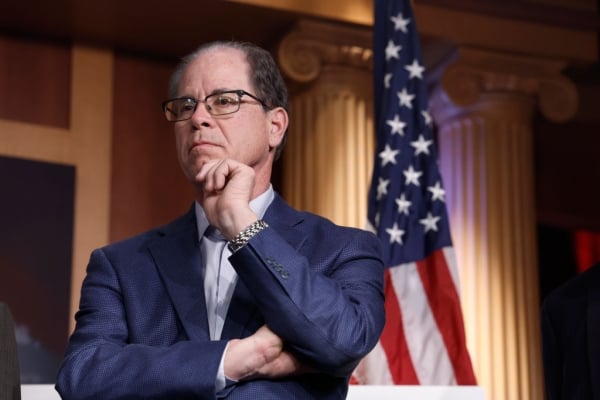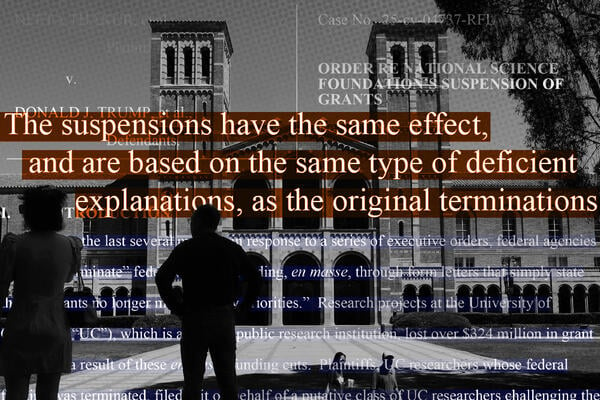On a recent vacation in the southwest portion of Ireland, as I was slogging away, trying to get the bicycle I was peddling up a reasonably daunting hill, I started thinking about generative AI.
I was thinking about generative AI because my wife, who is quite fit, but historically not as a strong a biker as I am, had disappeared into the distance, visible only because we were on twisting roads and she was several switchbacks ahead.
She also powered past my older brother, who competes in triathlons, and (I was told later) a French couple that muttered some apparent swears in their native language. Ultimately, she arrived only three or four minutes ahead of me at the top-of-the-hill way station, but as I huffed and puffed the final couple hundred yards, down to my next-to-lowest gear, moving at a just-above-walking pace, the gap felt enormous.
If you haven’t figured it out, my wife was riding an e-bike, while I was on a conventional (though very nice) bike. For the most part, the biking was very doable, but there were moments where I was not entirely sure I could or should keep peddling.
But I made it! Because we were touring with Backroads, an active vacation company, there was a delicious snack waiting for me at the top, which I enjoyed with great relish, knowing that I’d burned quite a few calories with many more to come that day.
I believe those French riders might’ve said something about “cheating” by using an e-bike, but this is obviously a case where what is cheating is in the eye of the beholder and significantly dependent on what you’re valuing about the experience.
If the point of our Ireland cycling vacation was to expend maximum effort on physical activities while cycling around the southwestern Ireland countryside, using an e-bike would prevent you from achieving your objective. But this is not the point of these kinds of trips. Yes, we have a desire to be active, outside and engaged, but the point is to use these methods to experience the place we’ve traveled to, and if—as happened to me a different day—you are perspiring so hard that the sweat dripping into your eyes has temporarily blinded you, it is tough to say that you are maximizing the experience.
Having the “best” vacation on this kind of trip is often a matter of balance. At times, I actively wished for the boost an e-bike could’ve given me. Other times, particularly on a day where we did 60 miles, and my brother and I were the only ones doing the whole itinerary, and we managed to go fast enough on the closing stretch to beat the Backroads van back to the hotel, I was thrilled with what it felt like to put my full physical effort behind the task.
I think my body paid for that big effort for a couple of days afterward, but I don’t regret it.
Like I said, it’s a matter of balance and values.
The e-bikes are great because they made it easier for my wife and me to ride together. The bottom-level boost had her toasting me up the hills, but on the flats, we were essentially the same speed, with us both working at levels we were comfortable with. The e-bike isn’t a motorcycle. You are still working plenty hard at the lower levels of boost.
But at the higher levels, you might find yourself speeding through the itinerary, as a group of four gentlemen in our group seemed to do, frequently arriving at our stopping points 20 minutes ahead of the rest of us.
I was thinking of generative AI because of the different lenses through which you can look at the use of an e-bike in the context of a bike-touring vacation.
You could see it as supplementary, allowing someone to experience something (like the view from a particular peak) that they wouldn’t otherwise unless they substituted something entirely nonbiking, like a car.
You could see it as substitutive, removing effort in exchange for feeling less tired and taxed at the end of the day.
You could see it as cheating, as those French riders did.
Because I don’t bike all that often at home, my primary “training” for the trip has been my regular Peloton rides, and for sure, those helped. My metrics on the stationary bike suggested I was well prepared. And I was, but well prepared doesn’t mean you aren’t going to face some very challenging moments.
There were several times—like that sweat-pouring-down-my-face period—where I would have gladly kicked in an e-bike boost in order to reduce my effort to conserve something for a different aspect of the trip, e.g., not being exhausted over dinner. But at no point did I need the boost to continue or finish the route, and if I was so inclined, Backroads is happy for you to hop in the van and get a ride the rest of the way.
I’m stubborn enough to not do that, but knowing myself, there were many times when an e-bike boost wouldn’t have been necessary or even desirable, when I would’ve switched it on in order to alleviate some measure of present discomfort. If it’s available, why not use it?
This would have signaled a shift in the values I initially brought to the trip. Whether or not it should be viewed as a betrayal or merely a change with its own benefits is a more complicated question, but at least for this trip, I was glad to not have the temptation.
I like to look at my opportunities to travel through the lens of experience. We aren’t going somewhere to check a box, but instead to literally spend time in a different place doing different things than our regular routines. I often know that I’ve had a good trip by the number of pictures I take—the fewer the better, because it means I was too absorbed in the experience to bother reaching for my phone to document something.
As we consider how to teach in a world where students have a superpowered e-bike instantly and constantly available, I’ve found looking at learning through the lens of experience is helpful, because focusing on the experience is a good way of identifying the things we should most value.
For my focus, writing, it seems almost irrefutable that if we want students to develop their writing practices, they should be doing the work without the assistance. The work must be purposeful and focused on what’s important in a given experience, but if that’s been achieved, any use of a boost is to miss out on something important. Learning is about riding up that hill under your own steam.
For writing especially, it’s axiomatic that the more you can do without the boost, the more you could potentially do with the boost.
Perhaps more importantly, the more you do without the boost, the greater knowledge you will gain about when the boost is truly an aid or when it is a way to dodge responsibility.
Figuring out where these lines must be drawn isn’t easy, and ultimately, because of the nature of school and the fact that students should be viewed as free and independent actors, the final choice must reside with them.
But we can act in ways that make the consequences of these choices and the benefits to opting for unboosted ride as apparent and inviting as possible.






